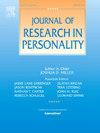Psychopathic traits predict reduced social punishment: Evidence from a large-sample survey and an experimental study
IF 2.6
2区 心理学
Q2 PSYCHOLOGY, SOCIAL
引用次数: 0
Abstract
Psychopathic traits are linked to reduced social cooperation, often prioritizing personal gain over others’ welfare. However, it remains unclear whether individuals with higher psychopathic traits are less likely to punish uncooperative behavior when acting as victims or observers. We examined this relationship through a large-scale online survey with hypothetical scenarios and a controlled experiment with economic games. In Study 1, psychopathic traits predicted reduced punishment across perspectives and costs. In Study 2, these traits predicted punishment only under cost conditions, driven by self-oriented justice sensitivity. These findings suggest egoism is the main reason for reduced social punishment among individuals with high psychopathic traits, which has implications for developing educational initiatives aimed at fostering their sense of justice and fairness.
求助全文
约1分钟内获得全文
求助全文
来源期刊

Journal of Research in Personality
PSYCHOLOGY, SOCIAL-
CiteScore
5.40
自引率
6.10%
发文量
102
审稿时长
67 days
期刊介绍:
Emphasizing experimental and descriptive research, the Journal of Research in Personality presents articles that examine important issues in the field of personality and in related fields basic to the understanding of personality. The subject matter includes treatments of genetic, physiological, motivational, learning, perceptual, cognitive, and social processes of both normal and abnormal kinds in human and animal subjects. Features: • Papers that present integrated sets of studies that address significant theoretical issues relating to personality. • Theoretical papers and critical reviews of current experimental and methodological interest. • Single, well-designed studies of an innovative nature. • Brief reports, including replication or null result studies of previously reported findings, or a well-designed studies addressing questions of limited scope.
 求助内容:
求助内容: 应助结果提醒方式:
应助结果提醒方式:


